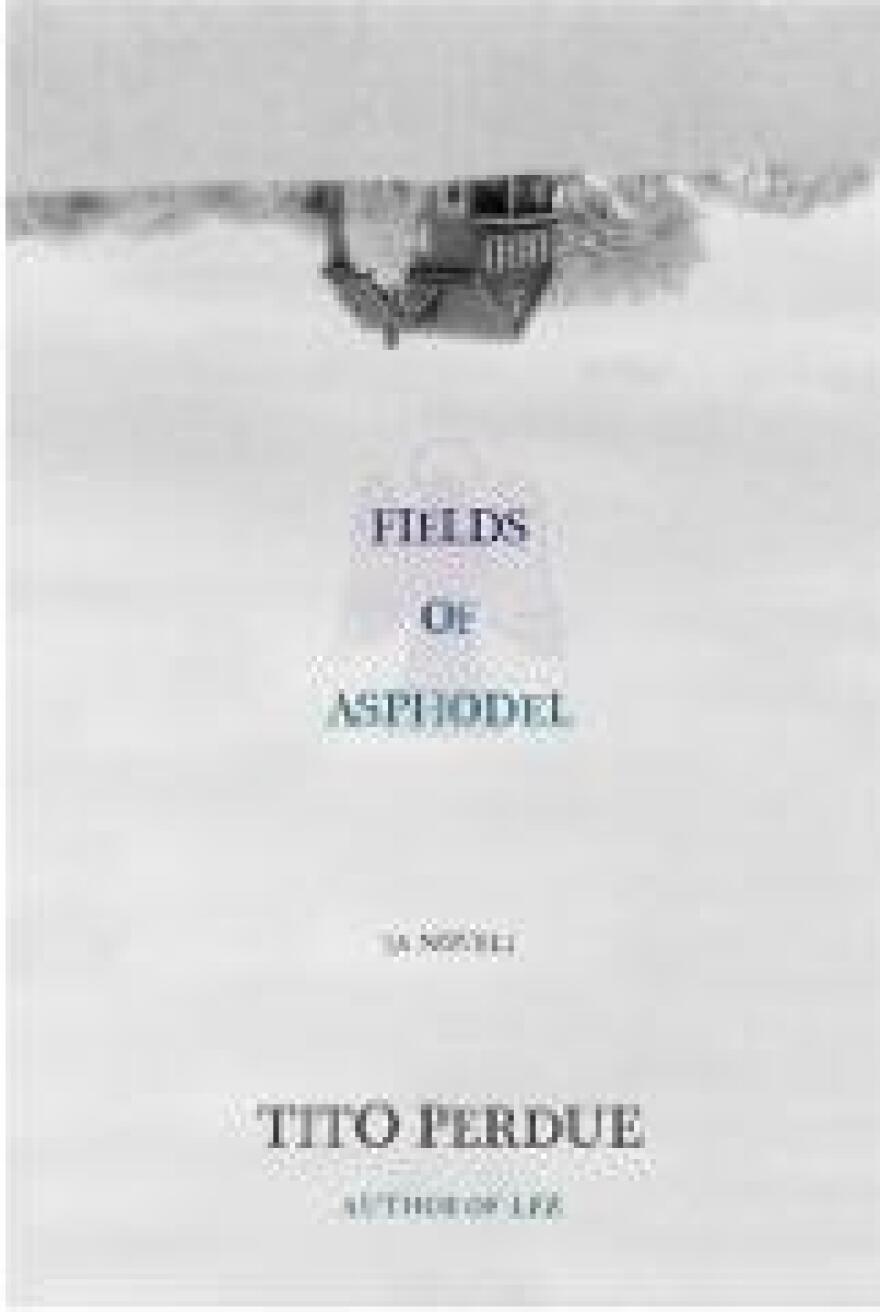Tito Perdue, now retired on the family property in Brent, Alabama, has been writing for twenty-five years, with critical but not much popular success. At the end of Perdue's fourth volume of fiction, the protagonist, Leland "Lee" Pefley, dies at age 73. On the first page of Fields of Asphodel, Pefley, who always introduces himself as Pefley, the Alabama branch, wakes up in the afterlife, the underworld, but not exactly the Christian heaven or hell or purgatory.
By Don Noble
Tito Perdue, now retired on the family property in Brent, Alabama, has been writing for twenty-five years, with critical but not much popular success. At the end of Perdue's fourth volume of fiction, the protagonist, Leland "Lee" Pefley, dies at age 73. On the first page of Fields of Asphodel, Pefley, who always introduces himself as Pefley, the Alabama branch, wakes up in the afterlife, the underworld, but not exactly the Christian heaven or hell or purgatory.
Lee is an Hellenophile, an admirer of all things Greek. The ancient Greeks divided the territory of the afterlife (general name, Hades) into areas. After crossing the River Styx, the dead spend eternity in Tartarus. The truly evil endure eternal pain in one section of Tartarus, like the Inferno of Dante. The virtuous, especially warriors and others who led active lives, enjoy the bliss of the Elysian fields. The Meadows of Asphodel is a kind of neutral territory.
This section of Hades is really bleak. The sun is dim and delivers little warmth. Nights are cold. It is often wet. Just about the only food is cabbage, raw, or in thin soup. Many of the inhabitants are wearing what they had on at the moment of death. The land is mostly sterile; no crops grow. It reminded me very much of Cormac MacCarthy's post-apocalyptic landscape in The Road. But, there are a few dogs and some vile-tasting lizards.
Pefley has been judged a geezer and an egotist-second class. In life he was vain, smug, arrogant, pompous, impatient, often violent. He carries with him always a large cane, and likes to use it. He has almost no empathy or fellow feeling. Pefley was filled with pride in his knowledge of the ancient Greeks and liked being called Dr. Pefley, although it is revealed he probably held no doctorate.
The inhabitants of the Asphodelian Fields wander like pilgrims, essentially aimlessly. In his wanderings, Pefley, like the others, moves from desert to seaside to surrealistic cityscapes. His wanderings would be pointless, like everyone else's, except that Lee has a quest. His greatest virtue as a living person was as a loving and faithful husband to Judy, his petite wife who had predeceased him. Pefley's wanderings then become a quest for Judy, and give his afterlife some meaning. He is an old-fashioned romantic, a Quixote, and worships his Judy.
Along the way, Perdue has a good deal of fun with the punishment centers Pefley discovers in the Meadows of Asphodel. He comes upon a herd of men naked, crawling on all fours, castrated, wearing brassieres and being shocked with electricity for eternity. They are male feminists. Pefley helps out with the torture and inquires "where are the female feminists?" Answer: They make their own hell.
More predictably, the punishment for the idle rich is to have molten gold poured down their gullets. This is practically a classic. The harmful rich?those who gained wealth by injuring others?and publishers, are in Tartarus, being punished in ways too gruesome to view.
Pefley is essentially a libertarian. He is an individualist but hates greed, excess, and yuppies. He has read thousands of books, as he will tell you proudly, but loathes post-modernism in literature and theory in literary criticism. If there was a perfect, a heavenly time for Pefley it would not be the late 20th century, but around 1890 to 1910, where the three Graces of our day?Atrophy, Entropy, and Anomie?did not reign.
Pefley is also a stickler for the correct, even the most Latinate or Hellenic of language, and the style of Fields of Asphodel is a highly literate, idiosyncratic diction. Perdue is not afraid to mention stromatolites (rock formations) or atrabilious clouds and walk on. This is a smart novel, a thoughtful novel and, obviously, an odd one?and, for this critic, a nice palate-cleanser from the usual Southern fare.
Don Noble's book reviews can be heard each Monday on Alabama Public Radio at 7:35 a.m. and 4:44 p.m. Recently retired as English professor at The University of Alabama, Don's specialties are Southern and American literature. Don also hosts Bookmark on Alabama Public Television.


